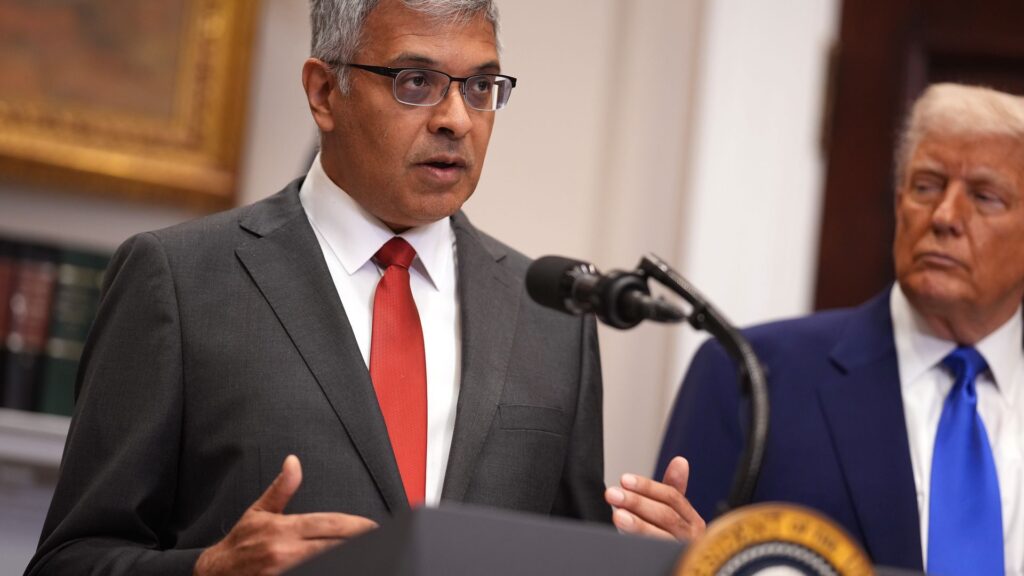A romantic dispute prompted the Department of Health and Human Services to temporarily halt research at one of the nation’s most prestigious laboratories, according to National Institutes of Health Director Jay Bhattacharya. The NIH director confirmed the rumors during Glenn Beck’s show Monday morning.
“It turns out there had been an incident a few weeks before, right before I had signed, I joined as the NIH director,” Bhattacharya explained.
NIH shuts down high-risk lab at Fort Derick’s army base
The lab is housed at Fort Detrick’s Integrated Research Facility, located on a U.S. Army base and operated by the National Institute of Allergy and Infectious Diseases. The facility is considered a hub for research focused on understanding, treating, preventing and eradicating diseases, including COVID-19, Ebola or Lassa Fever.
“It’s the highest bio-security lab,” he said. “The experiments done there are on some really nasty bugs.”
Bhattacharya confirmed that the research pause began with a romantic dispute between two lab employees.
“A lab worker had cut a hole in a bio-containment suit of a fellow worker with the expressed intention of getting that worker infected,” Bhattacharya said.
He also stressed the importance of the work conducted at the facility, warning that if any of the viruses were to escape, either into the general population or among lab workers, the consequences could be deadly.
Although Bhattacharya said he is not privy to all the details, he confirmed that a full investigation is underway into the incident and the safety protocols that were breached. As a precaution, he said he ordered the lab to halt all operations and secured the viruses and experiments being conducted.
“We’re not going to open that up until the safety environment in the lab is absolutely solid,” Bhattacharya said.
Safety protocols have decreased since Biden Administration
According to the NIH director, the lapse in safety protocol dates back to the Biden administration because officials downplayed violations in conduct at the high-risk lab.
“The issue here wasn’t just a one-off thing, it was something that was problematic, the safety culture of this lab,” Bhattacharya detailed during the show.
He addressed the purpose of the research, noting that it’s often framed as a way to prevent future pandemics by developing countermeasures against deadly viruses. But Bhattacharya pushed back on that idea, saying the notion that such experiments can reliably stop pandemics before they start is unrealistic.
Trump’s pause in gain-of-function research
His comments come on the heels of an executive order from President Donald Trump on May 5, directing a pause on gain-of-function research. Some deem this research controversial, as it involves enhancing the transmissibility or severity of pathogens to better understand potential threats.
“Over the next 90 days we’re going to develop a framework,” Bhattacharya said while explaining the pause. He said while some gain-of-function research is safe, like how insulin is produced for medical use, other research that mutates viruses is not, especially if it has the ability to cause a pandemic.
The order also calls for the creation of a framework that would allow the public to challenge proposed experiments if they are considered potentially dangerous to communities. This move aims to increase transparency and accountability in high-risk research by giving citizens a voice in decisions that could have broad public health implications.
When Beck asked whether the NIH owes the public an apology, Bhattacharya said the focus should be on reform, not apologies, in order to protect national security and safeguard the health of millions of Americans.
contributed to this report.


